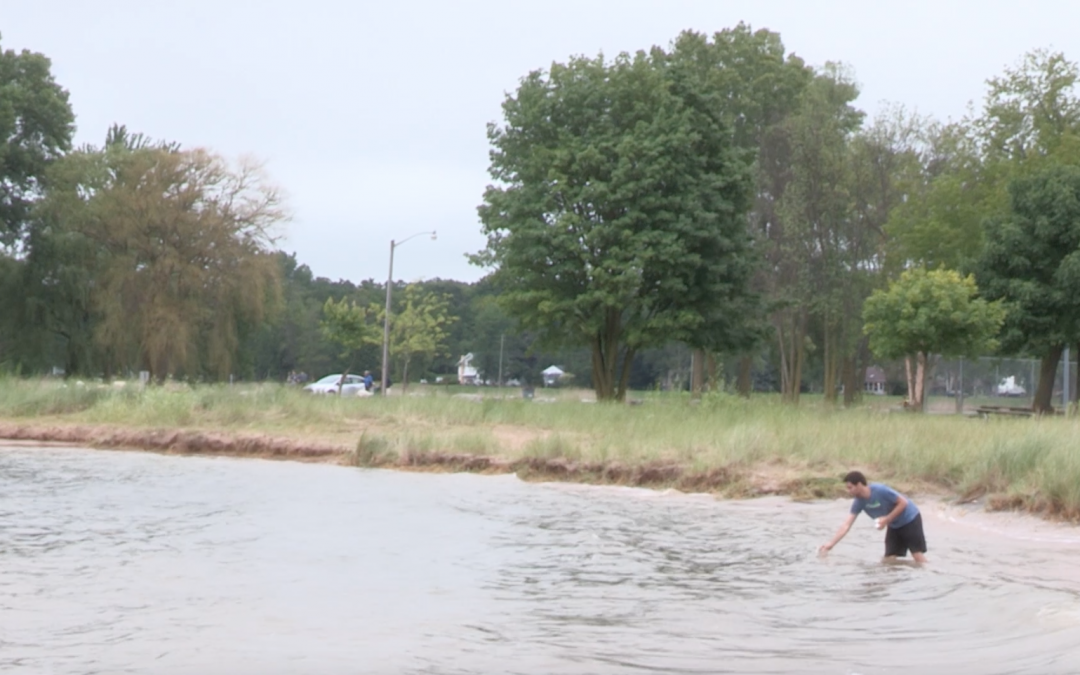University of Wisconsin Oshkosh microbiology graduate student Roland Hernandez has always known he wanted to work in science research.
“I never changed my major,” Hernandez said.
He came to UW Oshkosh because of the opportunity he saw in the Beach Monitoring Program, a summer research curriculum that sends UW Oshkosh students to live in Door County and perform daily tests of various beaches around Green Bay and Lake Michigan. Students take samples from beaches, test levels of E. coli and other coliforms, and report them to the public every day through an online portal.
When Hernandez and his co-investigators bring samples back to their lab, they add a medium called Colilert that helps them estimate the E. coli levels of a water sample. If a sample contains dangerous levels of E. coli, they alert beachgoers on a public website.
The catch? The Colilert method takes up to 24 hours, meaning that Hernandez and his team cannot alert the public to dangerous levels of microbes on the same day that samples were collected.
“When we do post the results publicly, they are actually from the day before,” Hernandez said. “So we want to get more rapid methods.”
Hernandez is testing the reliability of two additional methods for E. coli detection: one, called the Rapid Detection method, takes eight to 10 hours to process samples. A second method that Hernandez is testing for his personal thesis, real-time polymerase chain reaction, detects results in six hours or less.
If either of these new methods can be shown to reliably get the same results as the Colilert method, the Beach Monitoring program can significantly increase the speed at which they inform beach-goers about high levels of dangerous microbes in the water.
“We can use this all over and get results a lot faster everywhere,” Hernandez said.
Read more:

